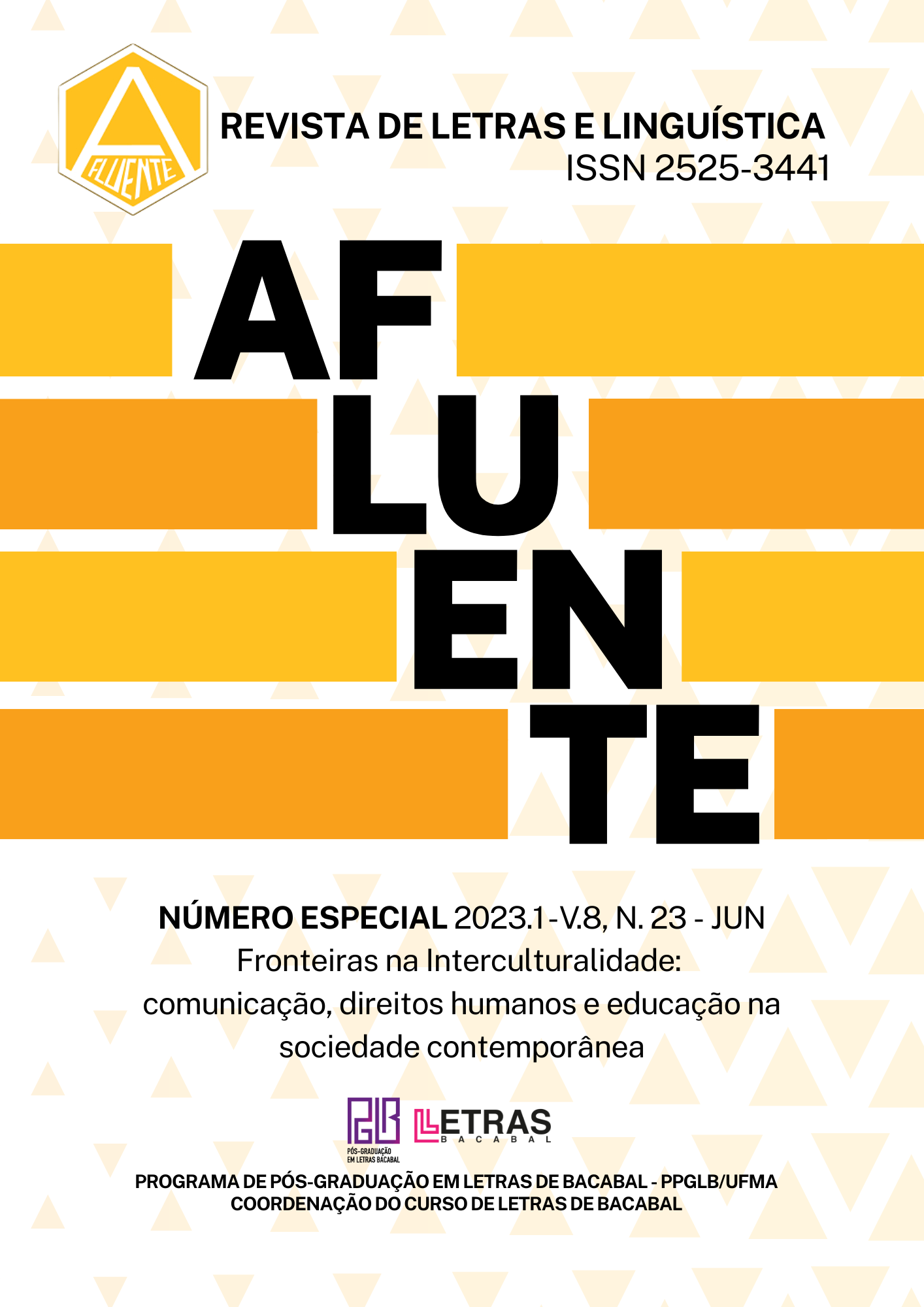OLD AND NEW CULTURES OF COMMUNICATION
TIMES OF CONSTRUCTION OF UNREAL SOCIAL REALITIES
DOI:
https://doi.org/10.18764/2525-3441v8n22.2023.10Keywords:
Communication, Cultures, Individual and mass, Symbolic society, Political powerAbstract
The study seeks to understand the transformations in the behavior of individuals in society from the point of view of communication, relating old systems and new spreading information systems. It makes a connection between the communicational processes and the conflicts of interest that demarcate contemporary societies. It problematizes the growing situations of erasure of the senses of truth and reality; the submission of large portions of the population to the denial of science and politics; the risks of weakening the foundations of the Democratic State of Law. It perceives the simultaneous coexistence of modern and primitive behaviors in the relationships of individuals and groups in their survival strategies, in their ways of producing knowledge and understanding political dynamics. The rise of fascism-inspired forces determined to establish control of public opinion is noted; still a predisposition of relevant population contingents to feel comfortable in the role of maneuver mass. It identifies this picture of deconstitution of modernity in Brazil, particularly in the period of the Bolsonaro government, characterized by the intense use of media discourses to generate disinformation, fear and violence. Qualitative analysis is carried out under the logic of the dialectical method and Critical Discourse Analysis, respecting the historicity of the object, based on analytical reasoning of information and concepts present in reference authors, in addition to objective data from social reality. The study expresses concern about the future of democracy as technology advances, in contradiction, it suggests a retraction of the potential of human intelligence.
Downloads
References
BELLUZO, L. G.; GALÍPOLO, G. Dinheiro: o poder da abstração real. 1 ed. São Paulo: Editora Contracorrente, 20121.
BRIGGS, A.; BURKE, P. Uma história social da mídia: de Gutenberg à Internet. 1.ed. Rio de Janeiro: Zahar, 2004.
DARDOT, P.; LAVAL, C. A nova razão do mundo: ensaio sobre a sociedade neoliberal. São Paulo: Boitempo, 2016.
DURKEIM, Émile. As regras do método sociológico. Porto Alegre: Editora Martin Claret, 2003.
EMPOLI, Giuliano Da. Os engenheiros do caos. Edição do Kindle Ed. 1. São Paulo: Vestígio, 2019.
ELIAS, N. A sociedade dos indivíduos. 1.ed. Rio de Janeiro: Zahar, 1994.
FIGUEIREDO, Lívia Marcos Ferrari. Liderança de opinião e interpessoalidade. Comunicação & Inf.,v. 16, n, p. 98-112, jan/jun. 2013. Disponivel em: 18/04/2023. https://brapci.inf.br/index.php/res/download/81008. Acesso em:
FREIRE, P. Pedagogia do oprimido. 48 ed. Rio de Janeiro: Paz e Terra, 2005.
FREIRE, P. Ação cultural para a liberdade. 8 ed. Rio de Janeiro: Paz e Terra, 1982.
GREENWALD, G. Sem lugar para se esconder. 1ed. Rio de Janeiro: Sextante, 2014.
HARARI, Y. N. Sapiens – uma breve história da humanidade. 30 ed. Porto Alegre, RS: L&PM, 2017.
KAKUTANI, M. A morte da verdade: nota sobre a mentira na era Trump. 1ed. Rio de Janeiro: Intrínsica, 2018.
KEYES, R. A Era da pós-verdade: desonestidade e enganação na vida contemporânea. 1 ed. Petrópolis, RJ: Vozes, 2018.
LEVITSKY, S.; ZIBLATT, D. Como as democracias morrem. 1ed. Rio de Janeiro: ZAHAR, 2018.
LUKÁCS, G. Prolegômenos para uma ontologia do ser social: questões de princípio para uma ontologia hoje tornada possível. 1 ed. São Paulo: Boitempo, 2010.
MELLO, P.C. A máquina do ódio: notas de uma repórter sobre fake news e violência digital. 1 ed. São Paulo: Companhia das Letras, 2020.
MORIN, Edgar. Cultura de massas no século XX: necrose. Rio de Janeiro: Forense Universitária, 2001.
NICOLELIS, Miguel. O verdadeiro criador de tudo: como o cérebro humano esculpiu o universo como nós conhecemos. Edição do Kindle. São Paulo: Planeta, 2020.
OLIVEIREA, Maria Marly de. Como fazer pesquisa qualitativa. Petrópolis, RJ: Editora Vozes, 2005.
O'NEIL, Cathy. Algoritmos de Destruição em Massa. Edição do Kindle. São Paulo: Editora Rua do Sabão, 2020.
RICCI, R. Fascismo brasileiro: e o Brasil gerou seu ovo da serpente. 1 ed. Curitiba: Kotter Editorial, 2022.
ROCHA, João Cezar de Castro. Guerra cultural e retórica do ódio: crônicas de um Brasil pós-político. Edição do Kindle, Goiânia: Caminhos, 2021.
RODOTÀ, Stefano. A vida na sociedade da vigilância: a privacidade hoje. 1 ed. Rio de Janeiro: Renovar, 2008.
SAGAN, C. O mundo assombrado pelos demônios: a ciência vista como uma vela no escuro. 4 ed. São Paulo: Companhia das Letras, 1996.
SNOWDEN, Edward. Eterna vigilância: como montei e desvendei o maior sistema de espionagem do mundo. 1 ed. São Paulo: Planeta do Brasil, 2019.
STEPHENS, M. História das comunicações: dos tantãs aos satélites. 1ed. Rio de Janeiro: Civilização Brasileira, 1993.
WOLF, M. Teorias da comunicação. 4 ed. Lisboa – Portugal: Editorial Presença, 1995.
Downloads
Published
How to Cite
Issue
Section
License
Copyright (c) 2023 Afluente: Revista de Letras e Linguística

This work is licensed under a Creative Commons Attribution 4.0 International License.
Direitos autorais Afluente: Revista Eletrônica de Letras e Linguística
Este trabalho está licenciado com uma Licença Creative Commons - Atribuição 4.0 Internacional.















